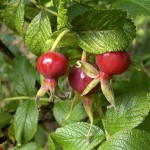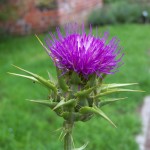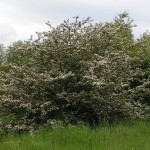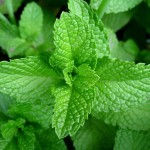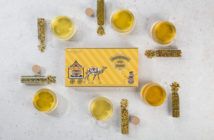- Dandelion
- Rosehip
- Milk Thistle
- Chamomile
- Hawthorn
- Peppermint
Generally caffeine-free beverages (with yerba mate and guayusa as two notable exceptions), herbal infusions can soothe a sick stomach, ease and calm a troubled mind, and even provide vitamins and minerals. Made by extracting leaves, seeds, flowers, roots or bark in hot water, these beverages provide a plant’s benefits in a digestible form. Researchers are discovering many health benefits associated with drinking these infusions.
Peppermint
Patients with irritable bowel syndrome (IBS) will be happy to know that an easy-to-grow herb may be able to help. A few controlled clinical trials suggest that peppermint essential oil is effective in reducing abdominal pain, flatulence and diarrhea associated with IBS. Infusing peppermint in hot water releases the essential oils into a flavorful beverage and has no known adverse effects.
Source: Prescrire International
Download our free Wellness & Tea 101 E-Book
Ginger
Ginger has long been known to help curb nausea, vomiting or an upset stomach due to motion sickness. In a select group of patients, ginger supplements reduced markers of colon inflammation, suggesting it may have potential as a colon cancer prevention agent, according to a study published in Cancer Prevention Research.
Source: American Association for Cancer Research
Chamomile
A gently calming infusion made from flowers, chamomile has often been used as a bedtime relaxant. One recent clinical study points toward the possibility that chamomile extract could provide modest benefits to patients with chronic primary insomnia.
Source: BMC Complementary and Alternative Medicine
Chamomile, which has been used as an herbal medication since ancient times, contains various bioactive phytochemicals that could provide therapeutic effects such as improving cardiovascular conditions, stimulating the immune system and providing some protection against cancer. Further research and scientific evidence will be needed to prove explore these potential effects.
Source: Molecular Medicine Reports
Hawthorn
Hawthorn extract has been used for cardiovascular diseases for centuries. According to The Herbal Pharmacist (Vol 7:4) hawthorn extract slows heart rates and helps improve the strength of heart muscle contractions. Recent trials have demonstrated its efficacy for the treatment of heart failure, and the results of several small trials suggest it may lower blood pressure. Larger trials will be needed.
Source: BMC Complementary and Alternative Medicine
Milk thistle
The seeds of milk thistle have been used for the last 2,000 years for liver diseases but other applications are becoming known. In one clinical study, topical application of a milk thistle extract, silymarin, to mouse skin prevented UVB-induced skin cancers as defined by tumor incidence. The use of silymarin in combination with sunscreens or skin care lotions may provide an effective strategy for mitigating the adverse effects of sun exposure.
Source: International Journal of Oncology
Rosehip
There are numerous biologically active compounds in extracts of rose fruit (rose hips) and petals from over 100 species of rose, including Rosa de Castillo. However, little information has been reported defining their mechanisms of action. One study recently provided evidence that infusions of laurel and Rosa de Castilla are inhibitors of the activation of inflammatory response.
Source: Journal of Medicinal Food
Dandelion
Dandelions, considered an annoying weed by many, has long been used to make tea and wine. Dandelion Root Extract (DRE) is used in traditional medicine as a detoxifying agent for digestive disorders and for lung, breast, and uterine tumors. One study concluded that the nontoxic extract of dandelion already commercially available in the form of “tea” and supplements are highly beneficial against aggressive chemo-resistant cancers.
Source: Evidence-Based Complementary and Alternative Medicine
Siyaram Pandey, a biochemist at the University of Windsor, has been studying the anti-cancer potential of dandelion root extract for almost two years. His team’s research showed that dandelion root extract forced a very aggressive and drug-resistant type of blood cancer cell to essentially commit suicide. Researchers then discovered that repeated treatment with low dose dandelion root extract was effective in killing most of the cancerous cells.
Source: The Windsor Star
One important warning: Use of herbs and other medicinal plant materials is widespread and continues to increase in popularity. However, this practice is seldom monitored by practitioners of Western medicine. Interactions with other medications and potential side effects should be discussed with a medical practitioner before use.



